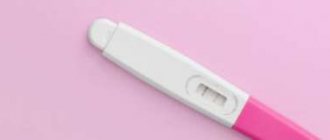Future young mothers, having learned about their delicate situation, often wonder: can you drink green tea during pregnancy
. It is known that green tea contains a lot of caffeine, which stimulates the nervous system, which is where this question arises. The myth that green tea is contraindicated for pregnant women is just that, a myth. You can and should drink it. But, of course, in limited quantities.
Benefits of green tea during pregnancy
High-quality green tea contains a huge amount of useful substances (vitamins, antioxidants, polyphenols, microelements), which increase the level of immunity, normalize digestion and contribute to the overall health of the body.
As for the benefits of green tea for pregnant women, it is worth noting the following properties:
- good prevention of colds, which are undesirable for pregnant women;
- cleansing blood vessels, reducing sugar and cholesterol levels, which is extremely important for both the expectant mother and the child;
- help with hypotension (so it’s better to drink a cup of green tea than take medication);
- strengthening gums, which often cause problems during pregnancy;
- reduction of toxicosis, which torments a woman in the early stages.
Thus, pregnant women are advised to consume green tea as it provides significant benefits.
This video is about whether pregnant women can take ginger, what beneficial properties it has and whether there are contraindications for its use.
Composition of green tea
Tea is a valuable plant containing more than 300 biologically active substances. Research on the drink has not stopped for 200 years, but this does not yet allow us to draw final conclusions about the effect of tea on the body. Along with scientific data, the healing decoction is richly overgrown with myths, folk beliefs and subjective experience of use.
Black and green tea are the same plant, but processed in different ways. Green undergoes partial fermentation, while black undergoes a complete oxidation process.
Green tea contains the following substances:
- polyphenols (tannin, flavonoids, catechins, etc.);
- alkaloids (caffeine, theine, theophylline, theobromine);
- vitamins (A, B, C, K, P, PP, etc.)
- minerals (calcium, potassium, zinc, fluorine, phosphorus, magnesium, selenium, manganese, copper, etc.);
- proteins, amino acids;
- carotenoids;
- tocopherols;
- polysaccharides;
- resins and organic acids;
- essential oils, etc.
There are a great many varieties of green tea, and each has its own characteristics in processing methods. The presence of active substances and nutritional value directly depends on the type of drink, as well as the brewing method, adding additional ingredients (lemon, mint, sugar, milk, condensed milk, honey, etc.).
Tea has a rich composition, and scientists continue to research the properties of this unique plant.
Since tea contains about 8% vitamins and minerals, their volume slightly covers the needs of a pregnant woman for the necessary elements. In this sense, it would be unreasonable to place high hopes on the drink. In addition, other components (polyphenols, alkaloids, etc.) that have a powerful effect on the human body give green tea special value.
In China and Japan, tea is recognized as a cure for all diseases.
Possible harm
Despite all the positive properties of green tea, its use still has negative aspects. First of all, it is important to know that during pregnancy you should not drink drinks with a high caffeine content. This substance has an extremely negative effect on the development of the fetus and can even cause miscarriage. At the same time, you need to understand that the “lightness” of green tea is deceptive - a cup of this drink is not inferior to coffee in terms of caffeine content.
Attention! Another significant drawback of green tea, oddly enough, is the high concentration of antioxidants. The fact is that they destroy not only dangerous free radicals, but also folic acid - an element extremely important for the normal development of the fetus. If there is a lack of folic acid, the child’s internal organs may not form correctly, and the central nervous system also suffers.
In addition to all this, green tea has a significant diuretic effect, which can lead to dehydration in early pregnancy. Interestingly, during the second and third trimester, this property, on the contrary, will help relieve swelling.
Benefits and harms
The benefits of the drink are based on its rich composition. The required amount of nutrients is contained in 1 cup. The advantages include:
- lowering blood pressure;
- stimulation of intestinal function;
- elimination of symptoms of toxicosis;
- strengthening the cardiovascular system;
- fight against infectious diseases and inflammatory processes;
- removal of toxins from the body;
- preventing the development of gestational diabetes;
- elimination of calf muscle cramps;
- strengthening the immune system.
Abuse of the drink is addictive. It is recommended to reduce its consumption even at the stage of pregnancy planning. A sharp refusal in the first trimester can cause a negative reaction from the nervous system. Exceeding the recommended daily dose makes green tea unhealthy. The disadvantages of its use include:
- decreased rate of absorption of folic acid;
- increased risk of iron deficiency anemia;
- development of addiction;
- irritation of the stomach walls.
A decrease in folic acid when caffeine enters the body affects the development of the child in the first trimester of pregnancy. Its deficiency leads to pathologies of the fetal neural tube . Additional intake of folic acid will not correct the situation.
ON A NOTE! Chinese tea differs from coffee drinks in the absence of a coloring pigment. This makes it safe for the top layers of tooth enamel.
How to brew and drink green tea for a pregnant woman
To prepare quality tea, you need to take bottled water and loose leaf green tea. The next steps are as follows:
- The amount of brewing is determined at the rate of 1 tsp. for 200 ml of water.
- The water is boiled and cooled to 80 degrees (higher temperatures are detrimental to delicate tea leaves).
- The tea leaves are filled with water and immediately drained - this is necessary in order to wash the leaves and also get rid of the infusion, which has the maximum concentration of caffeine.
- The tea is brewed again and infused for 1-2 minutes, after which it can be drunk.
The use of tea itself also differs in some nuances:
- You should not drink cooled tea, as it loses not only its taste and aroma, but also its beneficial properties;
- You should not drink tea with food, since in such a situation the drink interferes with the full absorption of iron;
- It is recommended to drink tea 40 minutes before a meal and 40 minutes after it;
- You can drink only 2 cups of tea per day - otherwise it can be harmful.
In addition to the above, it is worth remembering that tea does not replace ordinary water, which must be supplied to the body of a pregnant woman.
Should it be added to green tea?
If you want to add some variety to your diet, try adding lemon, a little mint, jasmine or lemon balm, and dried berries to your drink. Provided, of course, that you do not have allergic reactions to these products. Let's look at some additives in tea and their effect on the body of a pregnant woman.
| Product | Danger | Comments |
| Red raspberry leaf | safe | contains a lot of iron, reduces nausea, increases uterine tone |
| Mint | safe in small quantities | reduces the manifestations of toxicosis during pregnancy |
| Dandelion | highly dependent on personal tolerance | reduces swelling, replenishes the lack of calcium, vitamin A and iron |
| Chamomile | highly dependent on personal tolerance | rich in calcium and magnesium, helps with insomnia |
| Nettle | may be dangerous | contains many vitamins A, C and K, potassium, iron and calcium, it is recommended to consume only after consulting a doctor |
| Alfalfa | may be dangerous | rich in vitamins A, D, E and K, especially important in later stages, it is recommended to use only after consulting a doctor |
| Honey | may be dangerous | a hyperallergenic product that should be consumed no more than 50–100 g per day and only after consultation with a doctor, should be added to tea only at a liquid temperature of no more than +45 ° C |
| Jasmine | requires caution | normalizes the functioning of the digestive system, has a good effect on the nervous system, but due to the large amount of caffeine, it is recommended to use it only after consulting a doctor |
| Milk | relatively safe | not recommended for those with individual intolerance, helps reduce the effects of caffeine on the body |
| Melissa | relatively safe | helps with insomnia, contains a lot of vitamin C, should not be abused by those with low blood pressure |
This is interesting: Push-ups from wall to floor. How can a newbie girl achieve results?
Jasmine
Jasmine, when added to a drink, enhances its tonic effect. The leaves of the plant contain many antioxidants and catechins, so it is better to consume it after consulting a doctor. You will probably be interested in reading about whether pregnant women can drink tea with raspberries, lemon, bergamot, ginger, as well as fireweed, hibiscus, chamomile and linden tea.
To brew tea correctly, you need to add about 3 g of tea leaves, a few dried jasmine flowers to a glass of hot water (+80–85 °C) and cover with a lid. The infusion time is selected individually.
Milk
A young mother can drink tea with added milk, but it is worth noting that you need to add tea to heated milk, and not vice versa. This will reduce the negative effects of caffeine.
To prepare green tea with milk, for one serving it is enough to take 1 glass of hot milk, to which add 3-4 g of tea leaves. The drink is brewed for 10–15 minutes. This tea cleanses the body and speeds up metabolism. Find out if pregnant women can have tea with milk.
Melissa
Tea with lemon balm (also called lemon balm) is useful for pregnant women suffering from mood swings due to hormonal imbalance.
Thanks to its mild hypnotic and calming effect, lemon balm relieves irritability. A drink with the addition of lemon balm is prescribed to women as a diuretic or for constipation, as well as to combat swelling.
Mint
A mint leaf added to a drink helps relieve morning sickness even better than the pure version. This tea has a calming effect, eliminates dizziness, and has an antiseptic effect on the throat for various colds. However, overusing this supplement can be harmful. Important! The large amount of estrogen in mint, if consumed regularly, can cause premature birth or abortion.
Women with low blood pressure are also not recommended to use mint, as it already reduces it. In the last month of pregnancy, it is better to avoid drinking this plant, as it reduces the functioning of the mammary glands.
Otherwise, after the birth of the child, the mother may experience a lack of milk. Brewing this type of drink is easy: just add a few mint leaves when brewing. Green tea is a source of a large number of essential nutrients for the expectant mother. If the drink is consumed without violating the dosage, it will help not only overcome some of the difficulties of the process of bearing a child, but also improve the health of the woman and her unborn baby.
Features of drinking green tea in the early stages
It was already mentioned above that green tea can be especially harmful in the early stages of pregnancy, when the fetus is forming. First, you should avoid consuming caffeine, which has dangerous side effects. Secondly, green tea flushes folic acid from the body, which is extremely important for the proper development of the fetus and the normal state of the nervous system.
Thus, in the first trimester, it is recommended to reduce the consumption of green tea as much as possible and bring the daily dose to 1-2 cups. It is advisable to completely give up tea during this period. It can easily be replaced by natural juices or compotes.
Compromise
If a girl cannot completely give up this drink, then she should follow at least simple rules:
- Choose green tea that contains as little caffeine as possible;
- Buy quality tea;
- When drinking tea, it is recommended to avoid other drinks that contain even the smallest amount of caffeine.
- Drink no more than 2 cups per day.
Before drinking the drink, consult your physician and gynecologist. It is not recommended to ignore the advice of doctors who will give you professional advice.
Use after childbirth
If you drank green tea during pregnancy and did not observe any side effects, and the child’s development occurred without any complications, then after giving birth you can continue to drink this drink. However, you should not immediately sharply increase the amount of tea consumed, since if you are not used to it, this leads to swelling and increases the load on the kidneys.
Those women who gave up tea during pregnancy are advised to resume drinking it with extreme caution.
In the first month, it is better to refuse the drink, especially if there is postpartum hemorrhage, since the components of tea reduce the ability of blood to clot. Usually people start drinking tea a couple of months after giving birth.
If we talk about the effect of green tea on a baby who is breastfed, then it is worth knowing that theine has the greatest effect. This substance is similar to caffeine and has an invigorating effect. It is estimated that from 0.6 to 1.5% theine enters mother's milk, with the maximum concentration being reached an hour after drinking tea.
In case of an overdose of theine, the following problems in the child’s condition are noted:
- sleep disturbance, especially daytime sleep;
- confusion between day and night;
- increased excitability and moodiness.
In addition, green tea contains tannin, which negatively affects the baby's delicate digestive system. With a large amount of this substance, spasms, a decrease in appetite and a deterioration in the digestibility of food are observed.
An increased concentration of theine and caffeine also affects the mother’s body: it causes insomnia, leads to an irritated and anxious state.
In general, during lactation it is recommended to drink no more than 3 cups of green tea per day, and in this case it will not cause harm.
Briefly about the benefits of the drink
Green tea is a refreshing and tonic drink. We recommend reading about what kind of tea you can drink during pregnancy.
Among its useful qualities the following should be highlighted:
- in addition to its rich taste, it is distinguished by a large range of microelements, proteins and vitamins of almost all groups;
- theine (a type of caffeine compound) improves mental and physical performance, but at the same time has a more delicate effect on the body than pure caffeine;
- polyphenols contained in the drink have a beneficial effect on the cardiovascular system and help in the prevention of cancer;
- the product lowers blood sugar levels, which alleviates diabetes;
- tea is excellent for preventing caries due to the fact that it contains fluoride, which is necessary for tooth enamel, as well as antibacterial substances that disinfect the oral cavity;
- antioxidants in its composition block oxidative processes in the body;
- the drink strengthens the nervous and endocrine systems;
- has excellent diuretic properties;
- helps cope with attacks of nausea during motion sickness;
- It helps restore water balance in the body more effectively than plain water.
General recommendations for use
To avoid accidentally harming your child, you must follow these rules:
- in the first trimester, stop drinking green tea;
- drink 1-2 cups per day;
- brew a weak infusion, and also add milk to it to reduce the caffeine concentration;
- choose high-quality loose leaf tea;
- remember that it is better to drink the drink in the first half of the day between meals.
During lactation, you also need to be careful when drinking tea: rely on your own feelings and do not drink more than 3 cups a day.
Green tea has many beneficial properties, which is why you can and even should drink it during pregnancy. However, it is worth remembering that this drink also has significant disadvantages, which can have an extremely negative impact on the child’s health. Accordingly, green tea should be consumed with caution, and if you have any doubts or side effects, seek advice from a specialist.
How does green tea affect the body at different stages of pregnancy?
The main advantage of green tea is its enormous antioxidant effect, which is 100 times greater than the effect of ascorbic acid.
In the early stages of pregnancy, the drink is beneficial, helping to cope with toxicosis. In the later stages of pregnancy, it relieves swelling. In addition to these actions, it prevents gestational diabetes mellitus, enriches the body with vitamins and macroelements, improves immunity, and normalizes intestinal function.
Why tea prevents gestational diabetes
Gestational diabetes mellitus during pregnancy is detected by the results of a blood test for sugar tolerance.
Green tea reduces the amount of sugar in the blood, thereby preventing the development of gestational diabetes mellitus. This is important during pregnancy, as the risk of developing congenital diabetes in the child will increase.
Saves from toxicosis in the early stages
It is optimal to drink green tea containing small doses of caffeine.
In the early stages of pregnancy, the drink helps cope with toxicosis. It has an antioxidant effect and removes toxic substances from the body. Toxicosis is a restructuring of a woman’s body to a new level of work.
Reduces swelling during pregnancy
According to Western medicine, edema during pregnancy is a normal phenomenon if it is not accompanied by the release of protein into the urine and an increase in blood pressure.
In later stages, due to compression of blood vessels and some organs by the fetus, the process of removing fluid from the body is disrupted, and edema develops . Green tea helps remove excess fluid due to its diuretic effect.
Helps the digestive system
To get benefits for the body, just one cup of high-quality and properly brewed tea is enough.
Green tea improves digestion and stimulates intestinal motility. During pregnancy, many women experience constipation due to the position of the fetus. The drink helps eliminate them and prevents their formation.
Replenishes magnesium, iron and calcium deficiency
Magnesium and calcium are 2 elements that a pregnant woman’s body especially needs.
Green tea is rich in beneficial microelements, vitamins and enzymes. It replenishes a woman’s body with missing nutrients. During the period of bearing a child, the female body spends a lot of vitamins and microelements on the development of the child.
Improves immunity
The chemical composition of tea includes several hundred nutrients, the number of which increases every year thanks to constant research.
During pregnancy, immunity decreases, the body becomes susceptible to infection with colds. The drink strengthens the immune system and prevents infection from entering the body.
Normalizes heart function
Green tea during pregnancy supports the functioning of the heart and other vital organs.
The drink lowers blood pressure, prevents the formation of blood clots, improves heart function, and cleanses blood vessels of cholesterol. Expectant mothers often face high blood pressure; green tea can solve this problem. If, on the contrary, the pressure is low, then you should say no to such tea parties.










